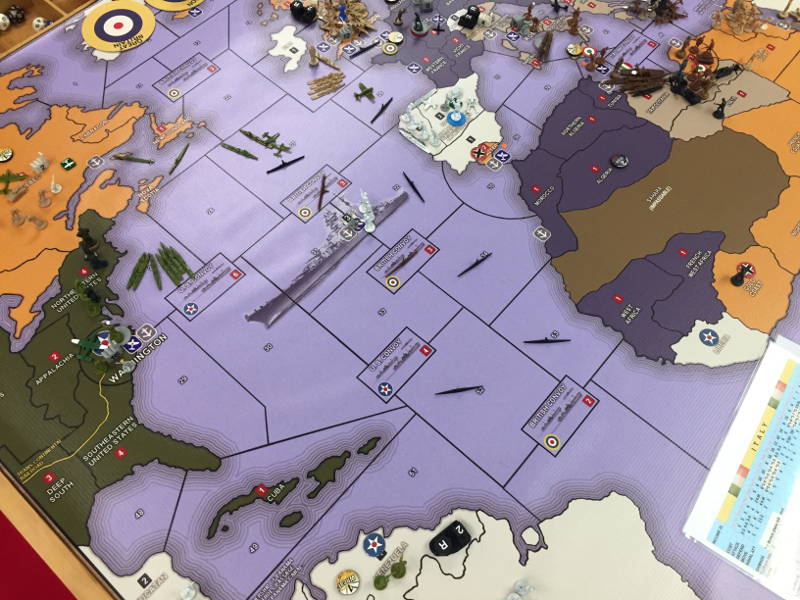@Cpl-Hicks
The simulation/realism issue you raise is an interesting one, and in my opinion there are two aspects to the problem. In a narrow sense, there’s the purely mechanical stuff: A&A is very abstracted, and it leaves out (or barely deals with) some crucial elements of WWII, notably logistics. The Battle of the Atlantic, for example, was essentially a multi-year supply battle whose first objective was to keep Britain alive and whose later objective was to build it up as a springboard for the cross-Channel invasion of western Europe. An even better example is the war in the Pacific: the whole point of the war was for Japan to obtain the natural resources it lacked at home (most crucially oil), which meant conquering the Dutch East Indies and nearby areas like Malaysia (where the resources were located) as well as the Philippines (to secure the shipping lanes between the DEI and Japan. Unfortunately for Japan, the Americans understood the importance of logistics better than the Japanese did: they focussed their submarine operations on those shipping lanes with the aim of gradually strangling Japan, and by 1945 they had succeeded in doing so. Japan, for its part, had too few transport ships, used inefficiently the ones it did have, and gave too little attention to convoy protection – all of which is astonishing, given the underlying purpose of the war. Realistically simulating all this in A&A would require a substantial overhaul of the game and would greatly change its nature.
More broadly, though, there’s the problem that simulating WWII as a whole (not just a specific part of it) creates an inherent problem. WWII was a long and complex struggle with all sorts of points at which factors such as strategic decisions could have changed radically all the subsequent events. Hence the following quandry: in order for a game to faithfully reproduce all or most of WWII’s major events, in the correct sequence, would have to be highly scripted, perhaps even to the point where its outcome is predetermined, which potentially isn’t much fun. Conversely, an unscripted game would almost inevitably deviate from history at some point or another…and the earlier the start date (say, 1940 as opposed to 1942), the bigger the deviations tend to be, which runs counter to the aim of having a realistic simulation in the first place. So in general, I tend to see A&A as a board game which is set in WWII rather than a board game which simulates it. An analogy I’ve heard is that there’s a similar difference between Monopoly, which is board game that has real estate transactions as its theme but which is highly abstracted, and the sophisticated financial simulation games or exercises which are sometimes played in business schools for instructional purposes.








